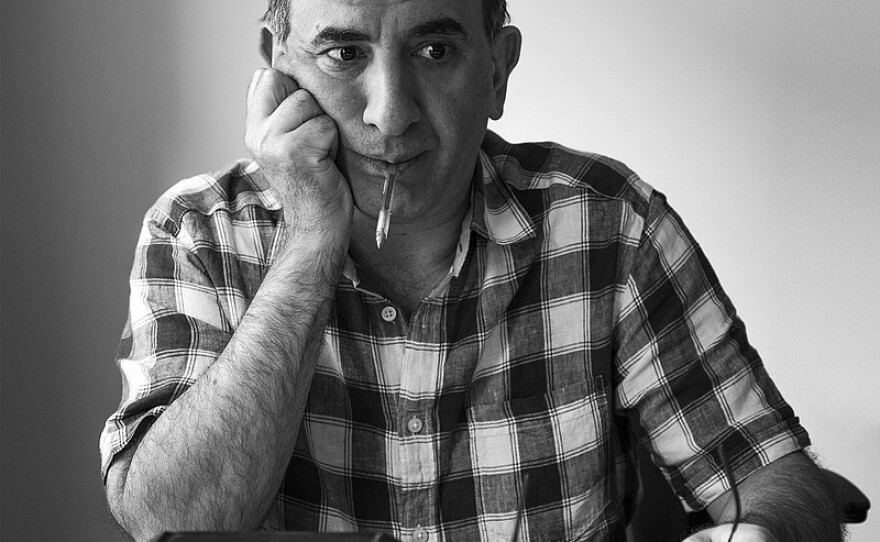Writer-director Armando Iannucci tackled British politics in "Thick of It," American politics in "Veep," and now he aims his satiric sites on Russian politics of the 1950s with "The Death of Stalin."
Iannucci quit "Veep" essentially because his fictional comedy about American politics couldn't compete with the real world absurdities of the Trump administration. Maybe that's why his new political comedy turns to Russian politics of the 1950s for "The Death of Stalin."
I first became aware of Iannucci when I saw the film "In the Loop" in 2009 and was introduced to the character of Malcolm Tucker. As played by Peter Capaldi, Malcolm grabbed me from his first moment onscreen and I was thrilled to discover that the character originated in a TV show called "Thick of It" where I could find more of his rants and tirades. Here are just a few of his NSFW lines. (Warning: As Malcolm himself says, he uses a lot of violent sexual imagery, so you have been warned.)
It was not just Capadli’s brilliant, seething delivery but the incredibly clever, sharp writing of Iannucci that completely riveted me. Not only were Malcolm’s lines insanely good (from "marzipan dildo" to "omnishambles" to "Shitehead Revisited") but so too were the lines given to other characters in reaction to him. Here is one of my all-time favorites describing Malcolm.
"I don't know which is worse; watching him slowly rumble towards you like prostate cancer, or him appearing suddenly out of nowhere like a severe stroke." (From Season 2, Episode 3)
Comedy is perhaps the most difficult thing to successfully pull off. Anyone can make you cry but not anyone can make you laugh and even fewer can make you laugh at things you feel are absolutely wrong to make jokes about. Take Steve Coogan as the title character of the movie "Alan Partridge" where his radio talk show host character ends up being the go-between in during a hostage crisis.
We all know that an armed gunman holding hostages and threatening to kill them is not funny, but Iannucci knows that we can laugh at a narcissistic jerk trying to turn that tragedy into a personal showcase for his own egotistical gains.

Iannucci cut his teeth on British comedy shows in the mid-1990s with "The Day Today" and "Knowing Me Knowing You with Alan Partridge," both featuring actor-writer Steve Coogan. He scored well with "Thick of It," a BBC series in the mid-2000s, and made the jump to feature films by writing the screenplay for the "Thick of It" spin-off movie "In the Loop" in 2009. In 2012 he jumped the Pond and created "Veep" for HBO where he launched a comic assault on American politics.
For his feature writing and directing debut, he turns to Russian politics of the past with "The Death of Stalin" based on a French graphic novel.
The Death of Stalin looks to the day Stalin died and the chaos that struck his inner circle as everyone jockeyed for position and power. The film recalls the comedy of Monty Python but with a wit and style that is distinctly Iannucci’s.
For Iannucci, making fun of those in power never gets old and you can always find something to laugh at. I am thrilled to have gotten a chance to speak with this comic genius about the art and craft of creating satire.


